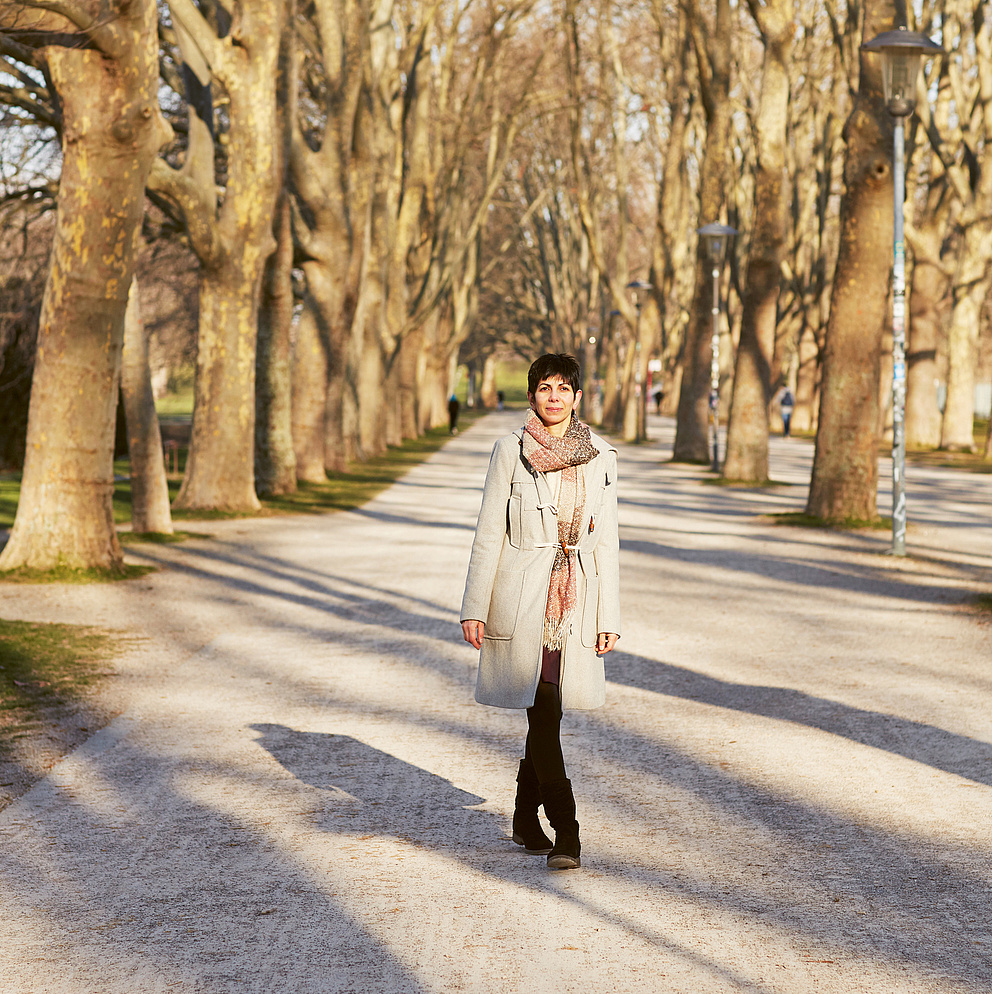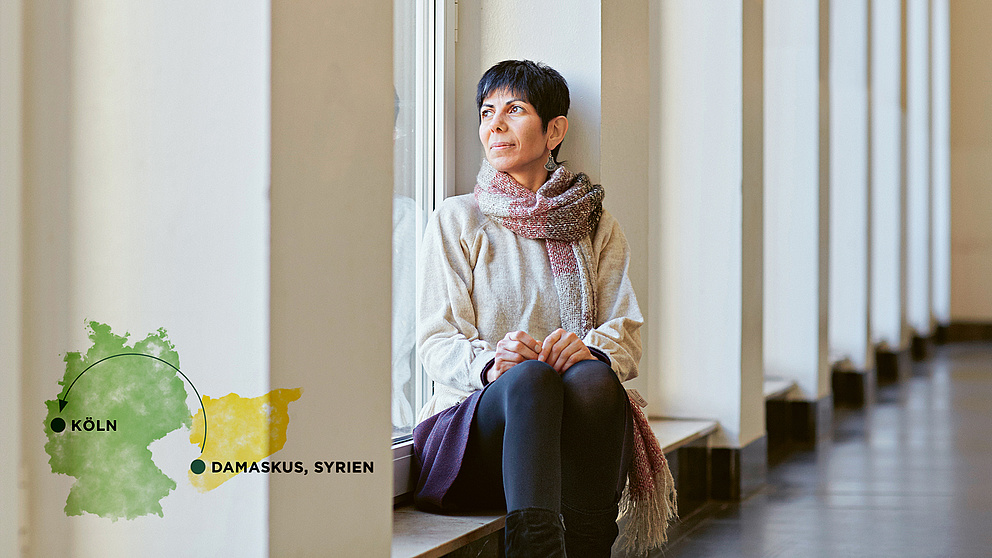Jump to the content
- {{#headlines}}
- {{title}} {{/headlines}}

Philipp Schwartz Initiative
Their home countries are blighted by war, their freedom of research is curtailed or they are persecuted: in many parts of the world, scientists and scholars are in danger. The Philipp Schwartz Initiative helps researchers who have fled their countries to find their feet at German universities and research institutions.
I come from Salamiyya in Western Syria and was an associate professor at the University of Damascus, lecturing in criminal law. My seminars were regularly attended by members of the secret service because the subjects I deal with indirectly criticised the government of Bashar al-Assad. My husband, Housamedden Darwish, is a philosopher and he published an academic work on the 2011 Arab Spring and its development in Syria. He was also subject to surveillance and even had to temporarily go into hiding. In 2013, I lost all hope of a future in our home country when a policeman turned up at our door one evening and asked for my husband. When I said, he wasn’t home, he said the next time he came he would take me with him. He threatened to have me – or of course my husband – thrown into one of the prisons from which hardly anyone emerges alive. We had to flee. But how? Officially, it was almost impossible to leave the country. I therefore pretended to have to go to Lebanon, as I had already done in the past, to get medicine for my father, who had cancer. We were allowed to leave the country for 48 hours – and have neverreturned. One of the hardest things was leaving my father. I knew I would never see him alive again and, indeed, he has since died of the disease. It causes me great pain.
As soon as we arrived in Greece, I felt a bit safer. After escaping through various countries, we ended up in a refugee camp in North Rhine-Westphalia.

Dr Anan Alsheikh Haidar
Country of origin:
Syria
Scientific field:
International Criminal Law
Host institution:
Universität zu Köln
Sponsorship Philipp Schwartz-Initiative:
07/2016 – 06/2018

I heard about the Philipp Schwartz Initiative during my husband’s interview for a position at the University of Cologne. And I also met Dr Johannes Müller there, the head of the International Science Department. I owe a lot to him because he introduced me to Professor Claus Kreß who holds the chair in international criminal law at the University of Cologne. He is also the director of the Institute for International Peace and Security Law and it was he who recommended me for the Philipp Schwartz Initiative. We were so incredibly lucky: both my husband and I were granted sponsorship, I from the Philipp Schwartz Initiative, my husband from Scholar Rescue Fund and the University of Cologne.
I managed well at the university. I worked as a researcher at the Institute for International Peace and Security Law focusing on the Syrian conflict and also attended seminars at the institute on different topics concerning international law. Maybe it helped that I had spent five years at university in the United Kingdom and was thus familiar with the Western higher education system. On a private level, it was more difficult. The team at the university’s Welcome Centre for International Researchers helped us find somewhere to live as well as a kindergarten for my son who was born in 2015. He was 14 months old at the time. At first, he went to a childminder and I spent almost my entire earnings on private childcare. But it was clear to me that the job through the Initiative was a unique opportunity for me. It allowed me to build an academic network in Germany which would have been impossible otherwise. When the sponsorship came to an end, my employment was even prolonged.
When my son skypes with our family in Syria, he can’t understand why he can’t simply visit them. But our names are on the Assad government’s blacklist. It would be suicide to return at the moment. That’s very hard to explain. But I am glad that we are in safety. Incidentally, my son swaps from Arabic to German when he is very happy, very sad or very angry. For him, German is the language of emotions; he has picked it up from the other children at kindergarten. A language in which he feels at home. That’s really nice.
Recorded by Carola Hoffmeister

